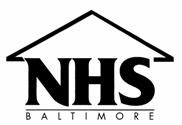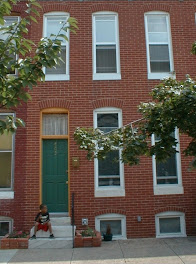By: Raevyn Jones, Marketing Coordinator, NHS of Baltimore
In today’s economy, renters and tenants are now being affected by foreclosure nearly as often as homeowners. The mortgage crises began in 2006 and resulted in millions of Americans losing their homes to foreclosure. Now there are thousands of renters, who without warning, are discovering that there rented house or apartment is now owned by a bank who wants them out because the property is being foreclosed upon.
Many tenants have no clue that their building has been taken at foreclosure. Because of this, they unfortunately continue to pay rent to the former owner who pockets the money but no longer maintains the building since they do not own it. New owners often refuse to make repairs and sometimes fail to pay utility bills. This makes life almost impossible for tenants as long as they are living in the foreclosed property.
Before May 20, 2009, most renters had no rights and lost their leases upon foreclosure. However, this changed when President Obama signed the “Protecting Tenants at Foreclosure Act of 2009.” This legislation states that leases would survive a foreclosure, meaning that the tenant could stay at least until the end of the lease and that month-to-month tenants would be entitled to 90 days. This protection law applies to Section 8 tenants as well.
A tenant who holds a lease and has to move out so that new tenants can move in may opt to sue their former landlord in small claims court. This is possible because after the lease is signed, the landlord is legally bound to deliver the rental for the entire lease term. When a landlord defaults on a mortgage, which sets in motion the loss of a lease, the tenant can sue for the damages it causes.
Today when a rental home is being foreclosed, tenants no longer have to feel like they are between a rock and a hard place. Due to these new rights, being a tenant in a foreclosed home does not mean you are instantly out on the street. There are also other resources that these tenants can utilize for help in these situations. Tenants can speak with a HUD certified housing counselor who will offer responsible, quality advice at no charge. For general information or referrals, tenants can contact the Baltimore Neighborhoods, Inc. Tenant- Landloard Hotline.
Wednesday, July 28, 2010
Subscribe to:
Post Comments (Atom)




+for+blog.jpg)
.jpg)

Hi,
ReplyDeleteGood information. People can try tenant insurance for a peaceful life.
Cool blog and Keep it up.
;)
This comment has been removed by the author.
ReplyDeletewe tend to tend to substance the kitchen appliances, pure furnishing grouping and each one that utilities that you simply poverty that you essential.
ReplyDeletebaltimore corporate housing